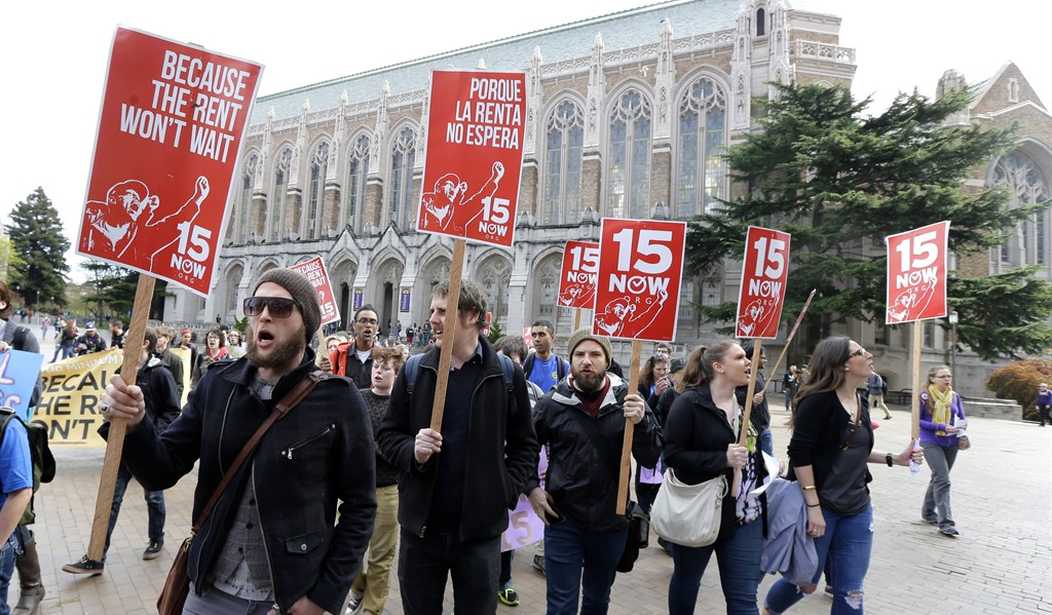I tend to follow food news a good bit. I enjoy seeing the trends, whether it’s in food programming on TV or the latest trends coming out of food companies and the restaurant industry.
The big political fight over the last week has been the COVID-19 relief bill, the first iteration of which included a federal minimum wage increase. Typically, minimum wage increases are divisive because they reignite the age-old fight between businesses and workers. The current federal minimum wage is not high enough to be a “livable wage,” and that is a point that Democrats and labor groups harp on constantly. Pro-business groups point out that raising wages forces increased costs on business owners, which can ultimately hurt jobs and force business closures.
As with all things political, the answer is probably somewhere more in the middle.
Most media outlets are pro-wage increase, and you see that throughout the media landscape. Right-leaning outlets are pro-business and attack the minimum wage increases whenever the idea is brought up. When we think of minimum wage workers, though, we typically think of restaurant workers, who work for an hourly wage and tips, not always making a fortune doing so.
Food & Wine has perhaps the most balanced coverage of the subject, and I highly recommend you go read it. It points out the pros and cons of increasing the minimum wage, and it ends with, I think, the best point: Perhaps it’s the entire restaurant model that has to change.
One of the best points made in the article concerns the most controversial aspect of the minimum wage increase, the elimination of the tip credit, which would force employers to pay a minimum wage separate from their tips. It seems like a good idea on paper, but the reality is that more than just a flat minimum wage increase would hurt workers.
Simone Barron, who has worked as a tipped worker for the past 20 years and is a Visiting Fellow with the Independent Women’s Forum, and the co-founder of the Full Service Workers Alliance, opposes the bill because she says it will actually mean lower wages for many restaurant workers. “Most full-service restaurant workers make far more than minimum wage with their tips,” she said. “Working short 4- to 6-hour shifts, a server likely makes $25 to $50 an hour.”
Barron does not oppose raising the minimum wage but says the tip credit is the sticking point for her. “I don’t think people are arguing that $2.13 is okay, but just labelling the tip credit as a starving wage and not recognizing the importance of tipped wages is a travesty,” she said. “I made far more money as a server than my friends [who worked] at the Gap. It allowed me to go to school, get out of my small town, and grow as a human being.”
Here’s the important part, though (emphasis mine):
She also said the tip credit has a positive impact on non-tipped back of the house workers because it frees up revenue to distribute wages more fairly. “Why are we giving a raise to people already making above minimum wage and not just giving it to people who need it in the back of the house. Looking at the bigger picture, we should not be eliminating the tip credit without more conversation.”
But where the piece ultimately ends up hints at the only real solution being a change in the restaurant business model. The current model is insufficient for both the workers and the restaurant owners. One person interviewed suggested evening out through an additional charge on bills.
Some operators, like chef/owner Jorge Guzmán and co-owner Travis Serbus of Petite León in Minneapolis, think the solution is to add a flat 20-percent service fee line to checks, which the restaurant can use to pay an equal living wage to both the front and back of the house. “Without the tip credit, to do it otherwise it makes no sense for the business model we are in,” said Guzmán. “Losing the tip credit adds to the division between front and back of the house because front of house workers will be getting full $15 plus tips, making the disparity even larger. This is the direction that we as an industry have to go in in order to properly pay the talent in the kitchen.”
It’s really difficult to say what other possible changes should happen. The restaurant industry has already taken such a huge hit from the pandemic that a minimum wage hike could cripple a lot of businesses in ways they couldn’t recover from. Likewise, eliminating the tip credit would hurt employees. And while it’s easy to say these jobs aren’t meant to be careers, it’s a lot harder to say that in this economy there are enough higher-paying jobs for these workers to quit their current jobs.
You could try to have a floating minimum wage that is tied to the unemployment rate. You could also give tax incentives to businesses that adopt a higher wage. But what you can’t do is force a major economic change on these restaurants and businesses at a time when the economic future is uncertain. That’s the ultimate mistake the Democrats are making, and it’s up to businesses and employees to come up with solutions rather than the government.













Join the conversation as a VIP Member